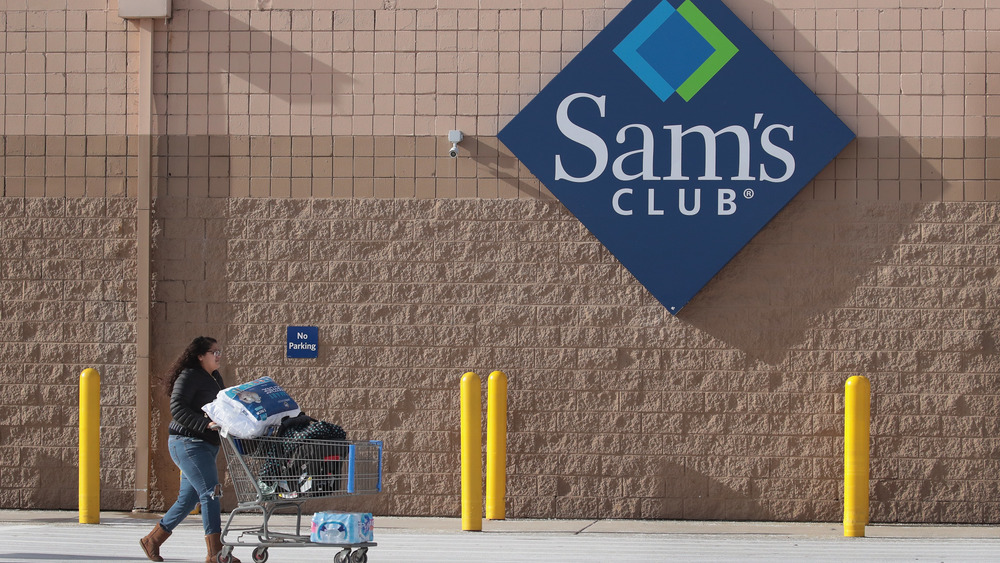Read This Before Buying Sam's Club Member's Mark Products
In 2017, Sam's Club finished bundling its various in-store brands under one name: Member's Mark. Efforts began in 2015 when Talk Business & Politics reported on plans to reduce Sam's Club's 15 private labels to two. It seems to have been needed.
The reinvention of Member's Mark, however, proved more radical than a simple relabelling. As Sam's Club explained in a press statement, the team imagining the new private label tapped into the knowledge of "top sommeliers in France and local olive and tomato farmers in Italy" among others to produce the best offerings possible for an array of goods. In the end, the brand introduced 300 new items, including imported wines, handcrafted caramels, and U.S. cultivated honey. Since then, Kitchn, has noticed that other non-food items have been introduced as well, such as a bamboo prep table.
Of course, as Sam's Club requires a membership to access its stores and purchase its products, the point of this bundling is to create a clear reason to force consumers to visit and shop.
Sam's Club's private label focuses on quality at a lower cost
The restructuring worked. "We are seeing the power that comes from having just one brand and we're holding ourselves to a very high standard for any item we put the Member's Mark name onto," John Furner, CEO of Sam's Club, reported to Talk Business & Politics in 2018.
The piece goes on to note that 81 percent of American shoppers buy private labels and 53 percent choose a retailer based on what private label it offers. "When I am in a city with a Trader Joe's I want to stop in and get these items," Pamela Gaik, vice president of private brands at Sam's Club, explained.
The increase in traffic, however, is only one of two factors behind the decision made by stores like Trader Joe's, Costco, and Sam's Club to develop a strong private label. As The Motley Fool noted in 2017, the point of a private label is to allow a chain to make its own products, thus lowering the amount spent in procurement and raising potential profits. Moreover, if the private label provides quality, as Member's Mark set out to do, the consumer will notice the quality of the food for its relative cheapness and become a more loyal customer, which increases sales in turn.
So, really, the reinvention was pivotal to Sam's Club's strategy, beyond simply slimming its labelling work.

